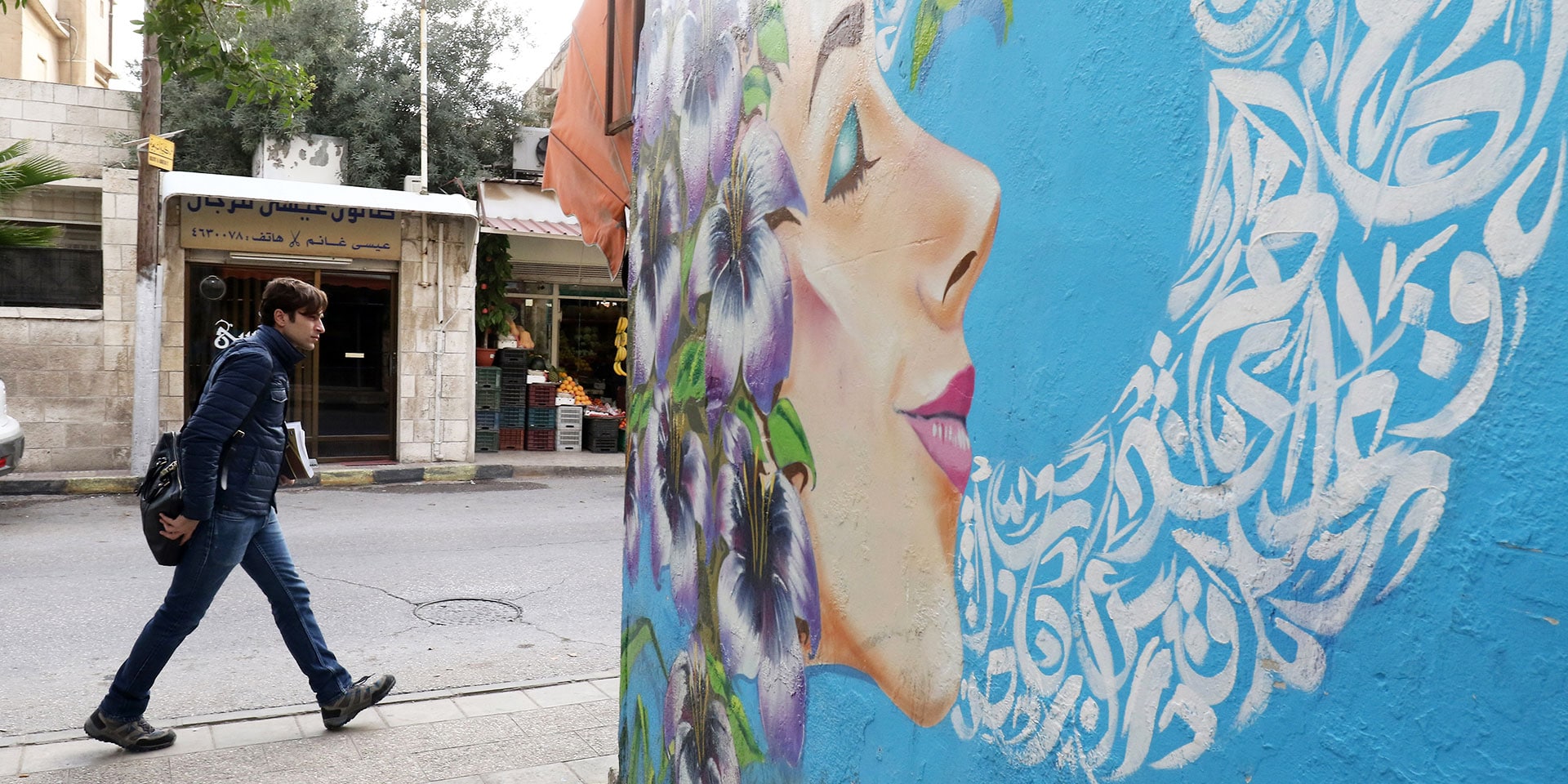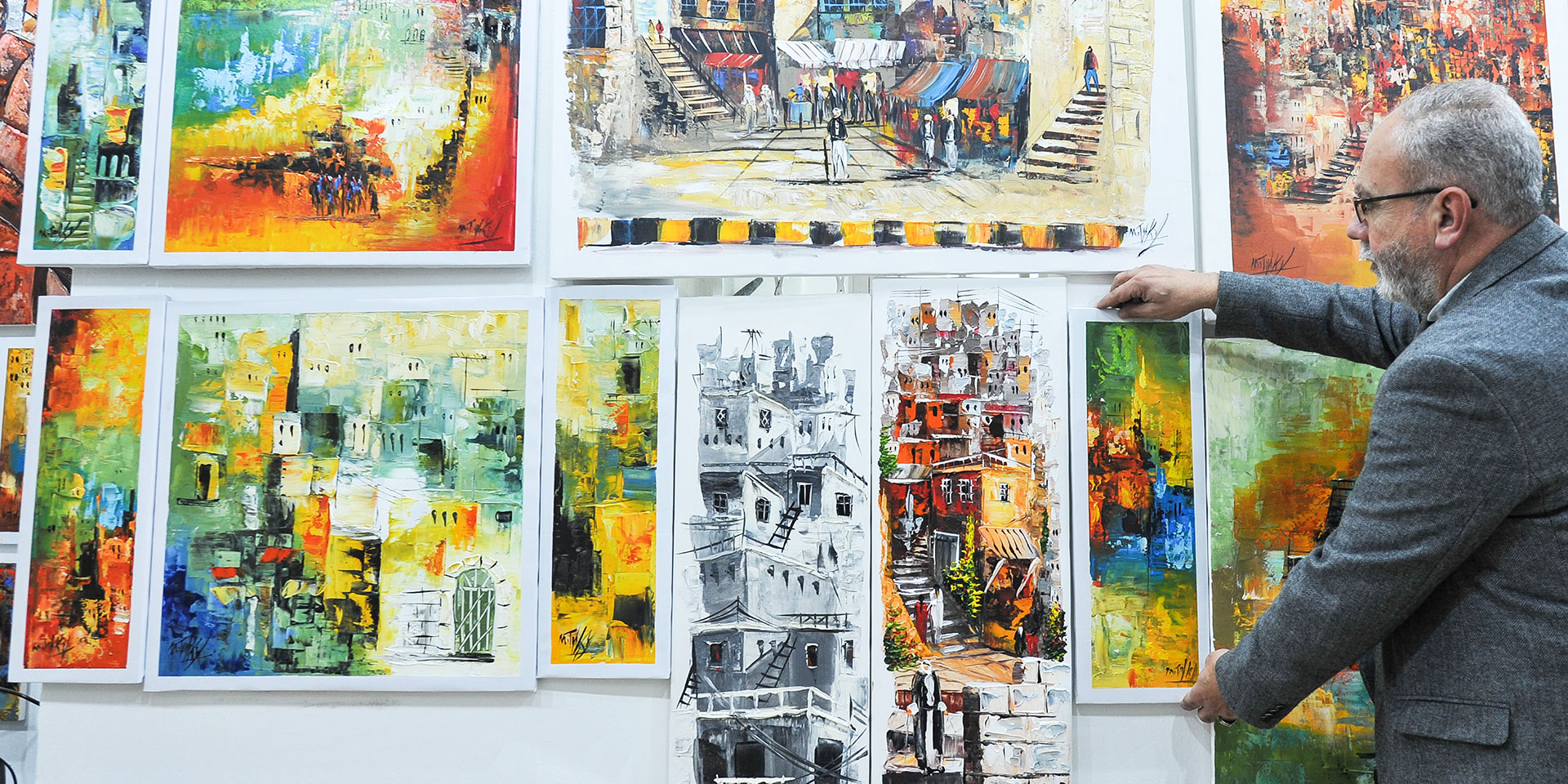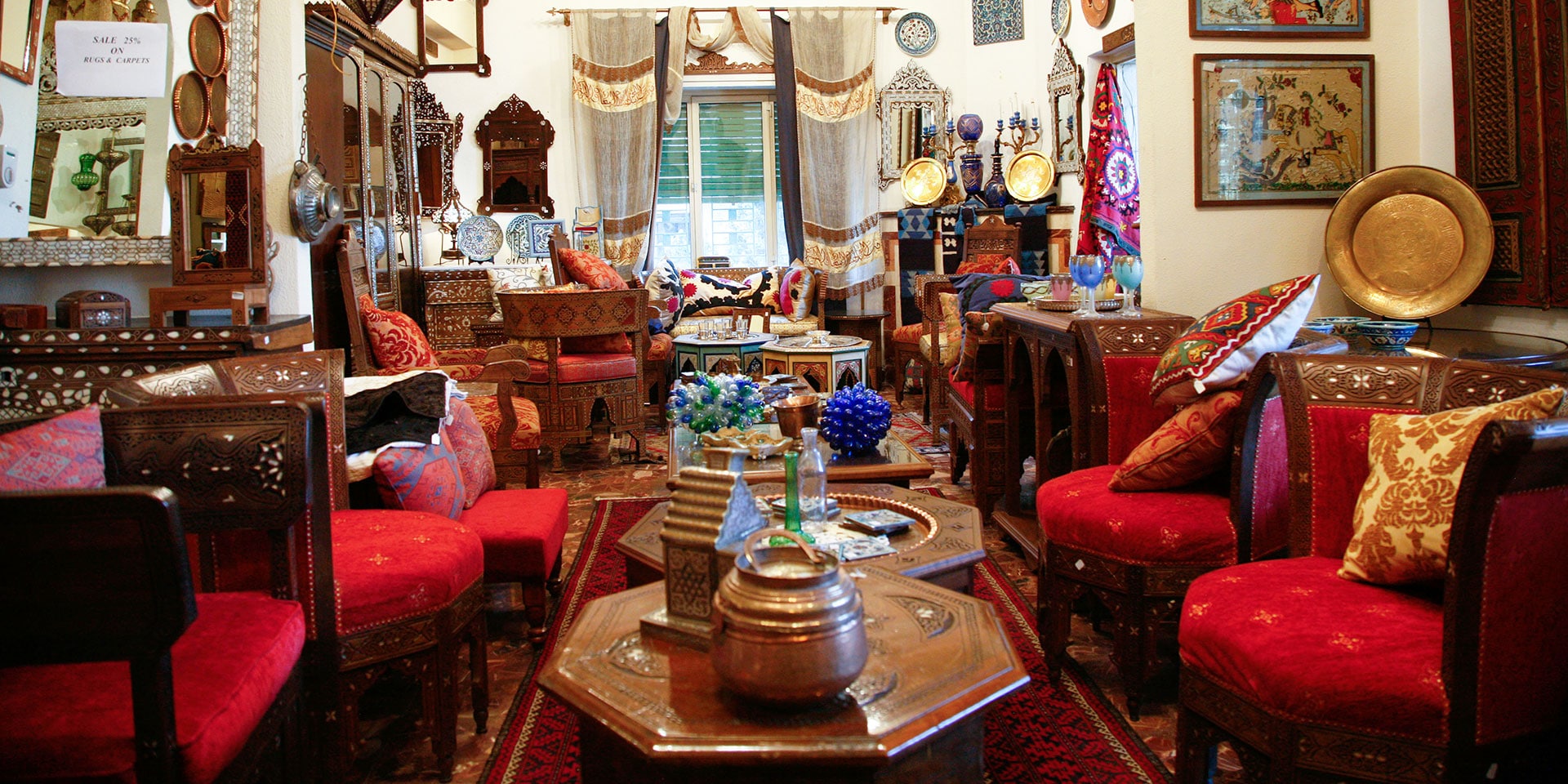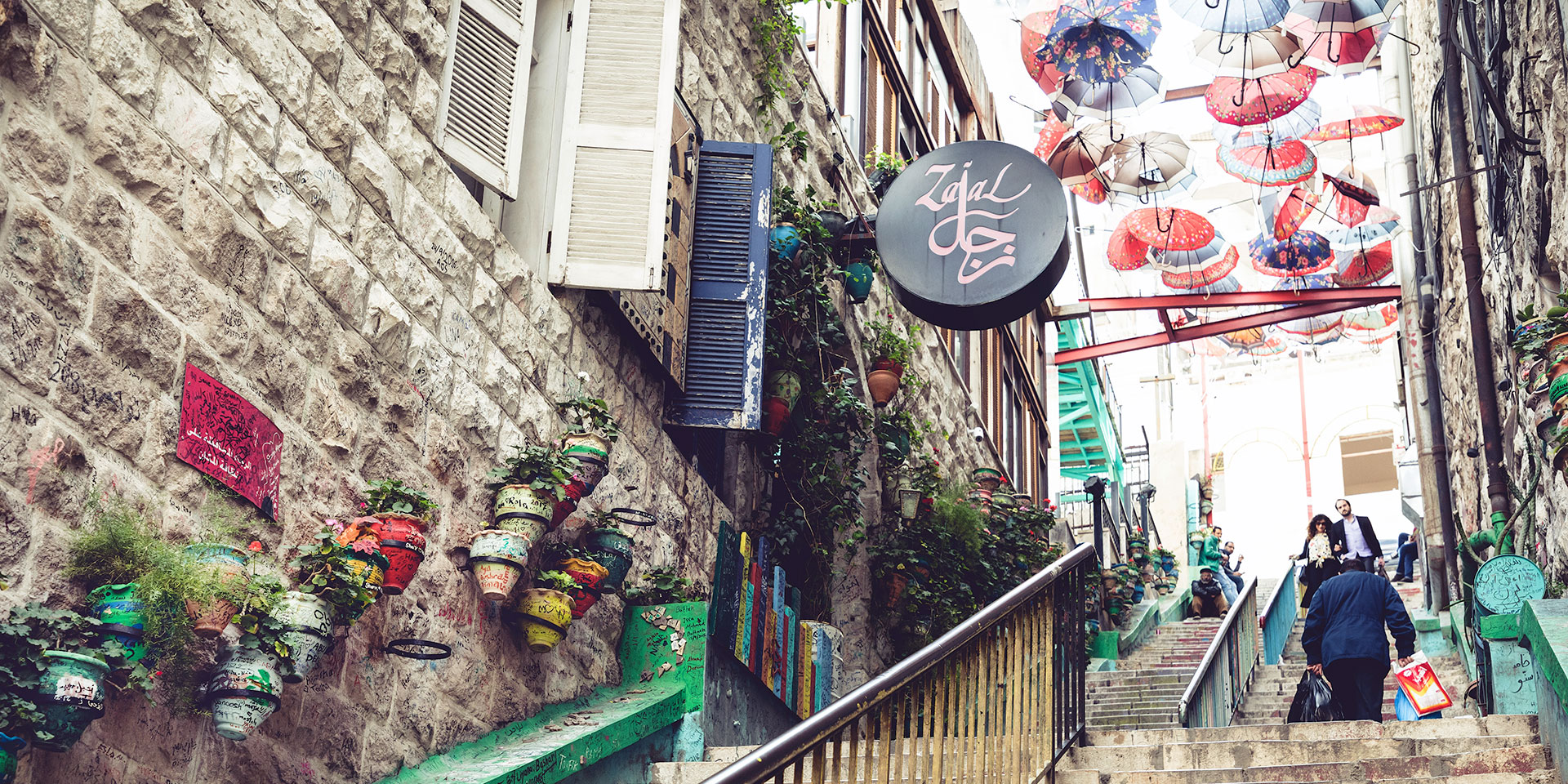With a rich past and a vibrant present, Amman, the capital of Jordan, is a heady collision of antiquity meets modernity. For culture and art lovers, the city holds many secrets within its folds, each a delight to discover and savor.
Meander Through Atmospheric Souks
Markets offer the best opportunity to interact with locals, apart from being every street photographer’s perfect muse. Amman has plenty of souks that visitors can wander through and find treasure-troves of objects. Be prepared to put your bargaining skills to the test, though.
At the open-air Souk al-Bukharia, shop for haberdashery, traditional textiles, twinkling lanterns, antiques and more. At the Souk el-Sagha, a gold souk, feast your eyes on glittering gold and silver jewelry and trinkets. Even if you aren’t looking to buy, go there to gawk at the attractive window displays meant to lure potential buyers into stores.
Spices are an integral part of Middle Eastern culture, and Souk el-Atareen is the best place to find a variety of spices used in local cooking. Also on offer are numerous herbal remedies meant to cure aches and pains.
Craft lovers will be spoiled for choice at Flohmarkt and Souk Jara, which brings together crafts from around the country — everything imaginable is up for sale here, including family heirlooms and handmade soaps.
Attend Festivals
Amman is known for its stark brown cityscape, but in recent years, colorful and larger-than-life street art has been adding a splash of much-needed color. The Baladk Street Art Festival held in May every year is an eagerly awaited event that brings together a host of local and international talent.

King Hussein Park plays host to the 10-day Amman Summer Festival, which celebrates the country’s art, music and dance.
Film buffs head to the Al Hussein Cultural Center to catch screenings of European cinema at the European Film Festival. A landmark of the Jordanian cultural scene, the Franco Arab Film Festival brings to the fore films produced in the Arab region. In addition to watching screenings, visitors can interact with filmmakers and attend workshops and discussions.
Amman Design Week, held every October, is an immersive design experience with a lineup of talks, exhibitions, cultural events and competitions that draws participants from around the region.
Arts in Amman
Jordan leads the way in contemporary art in the Middle East, and there are numerous galleries and museums to visit. The Jordan National Gallery of Fine Arts, established in 1980, comprises more than 2,800 works, including paintings, sculpture, graphic art, installations, photography and more. The gallery provides a platform for more than 1,000 artists from 66 countries, mostly across Asia and Africa, to showcase their work. Besides viewing its impressive permanent collection, catch rotating special exhibitions.

Darat Al Funun, overlooking the crowded downtown of Amman, is an oasis of art and culture set in renovated buildings belonging to Jordanian, Palestinian, Syrian and Lebanese families. View contemporary art exhibitions, browse through the extensive collections of books in the art library, or attend events held in the garden, set amid the ruins of a sixth-century Byzantine church built over an ancient Roman temple.
Experience more contemporary art in the smaller galleries in the historic neighborhoods of Jabal Al Weidbdeh and Jabal Amman. Housed in a elegant villa, Nabad Art Gallery exhibits works of emerging Jordanian artists and offers professional art classes.
Stroll through Amman’s Eclectic Neighborhoods
Besides galleries, Jabal Amman is also filled with quaint bookshops and cafés; it is a great place to spend an afternoon. Traffic-filled Rainbow Street with its cafés, shops and restaurants is better navigated on foot and is one of the best places to people-watch.

If the crowds get to be too much, leave them behind and head to Fawzi Malouf Street or Souk Jara Street. Once home to royalty and wealthy families of Jordan, these streets house many charming villas dating to the 1920s and 1930s.
Buy traditional and contemporary arts and crafts made by women from rural and nomadic communities at Jordan River Designs. You’ll also find the first internet café in the Middle East, books@café, which has a wide variety of bilingual books for sale. There’s also home-roasted gourmet coffee and international cuisine on offer.
For spectacular views of Amman, head to the Wild Jordan Center, run by the Royal Society for the Conservation of Nature. Apart from promoting ecotourism in the country, the center has a well-stocked gift shop on-site that sells baskets, olive-oil soaps, tea and more. All proceeds go toward funding ecotourism sites around the country.




